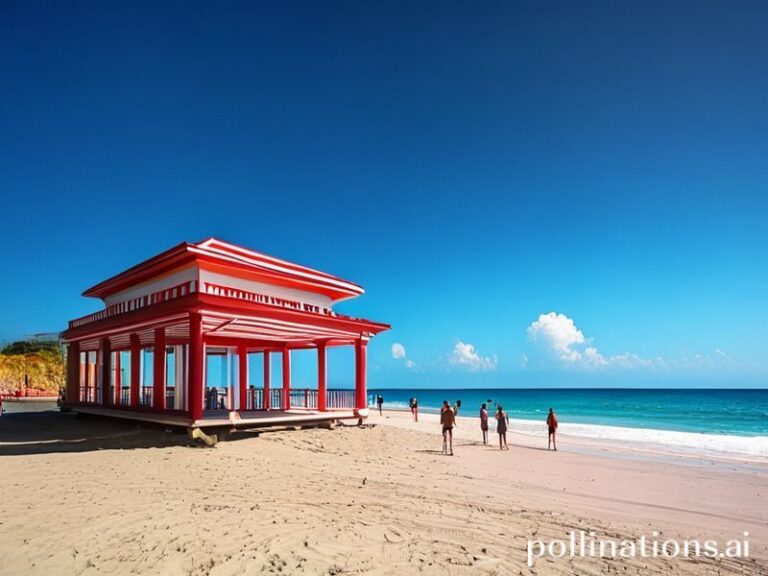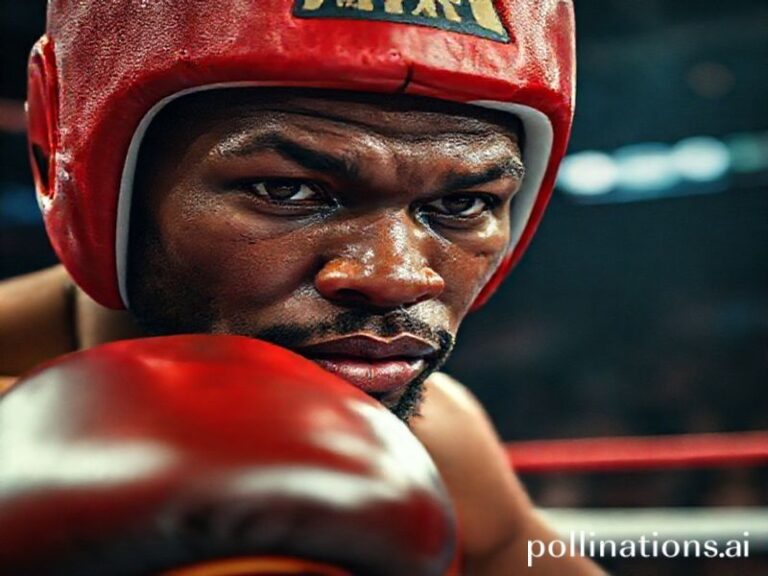Dynasty in a Red Hat: How Lara Trump Became the World’s Most Unlikely Geopolitical Stock Option
From the banks of the Tiber to the neon canyons of Tokyo, political dynasties have always been the world’s longest-running soap opera—equal parts Shakespeare and telenovela, with product placement by defense contractors. Enter Lara Trump, née Yunaska, who has improbably upgraded from North Carolina wedding caterer to potential U.S. Senate candidate and co-chair of the Republican National Committee without ever having to change her surname. In most countries, nepotism at this altitude would trigger a parliamentary inquiry or at least a sheepish apology. In 2024 America, it’s simply “Thursday.”
The international press has watched the Trump franchise expand like a morally questionable multinational. Just as the Agnelli name still opens doors in Milan and the Kims never need a LinkedIn profile in Pyongyang, the Trump brand now functions as a sort of diplomatic currency—accepted in certain golf resorts, evangelical greenrooms, and, increasingly, the corridors of the RNC. Lara’s elevation is less a coup than a corporate merger: the family business absorbing the party apparatus the way a boa constrictor absorbs a capybara—slowly, visibly, and with no regard for the digestive comfort of bystanders.
Across Europe, where hereditary politics is usually draped in ermine and called “constitutional monarchy,” the spectacle prompts both envy and relief. French pundits note that even the Le Pens still bother to run in elections; the British marvel that a nation founded on a tax revolt now offers dynastic promotions like a medieval court. Meanwhile, in Beijing, state media has filed Lara under “useful chaos,” a living case study in how liberal democracies can be persuaded to rebrand oligarchy as family values.
The global implications are, of course, enormous—mostly for consultants. NATO planners now game-out scenarios where U.S. foreign policy is conducted by a rotating cast of in-laws, like a particularly belligerent season of Succession. Gulf sovereign wealth funds have begun adding “Trump-in-law risk” to their prospectuses, right between “cyber-attack” and “asteroid collision.” And in Davos, the cocktail chatter is that if the Trumps ever trademark the concept of democracy itself, the licensing fees alone could wipe out the U.S. national debt—assuming anyone still honors the invoices.
Lara herself plays the role with the polished ease of someone who has spent years on camera defending everything from election denial to her father-in-law’s dietary choices. Where her husband Eric provides the family’s raw id, Lara offers a kind of serene inevitability, like a flight attendant explaining that, yes, the plane is on fire, but please remain seated until the seat-belt sign is switched off. Her Senate flirtation in Florida—should Marco Rubio accept a hypothetical cabinet post—is less insurgency than inheritance: the political equivalent of being handed the keys to a beach house that already has your monogram on the towels.
Critics, of course, call it banana-republic cosplay. Supporters call it “the free market of charisma.” The rest of the planet simply adjusts its risk models. After all, if American democracy can be franchised like a fast-food chain, savvy investors will hedge accordingly. Tokyo’s SoftBank is already rumored to be developing an AI that predicts which Trump relative gets which plum post, while Brussels regulators debate whether “Trump” should be classified as a systemic contagion on par with subprime mortgages or avian flu.
In the end, Lara Trump’s ascent is less about one woman’s résumé—impressive or otherwise—and more about the global normalization of the family firm as state apparatus. It’s a trend that would feel right at home in Azerbaijan, Equatorial Guinea, or any other petro-kleptocracy where Christmas cards double as cabinet appointments. The difference is that the United States still insists on exporting this model with a straight face and a TED Talk on freedom.
So as the world watches another Trump prepare for prime time, the consensus among seasoned observers from Lagos to Lisbon is simple: buy popcorn futures, short shame, and remember that every empire eventually becomes a family business. The only mystery left is whether the eventual IPO will be listed on the New York Stock Exchange or QVC.







